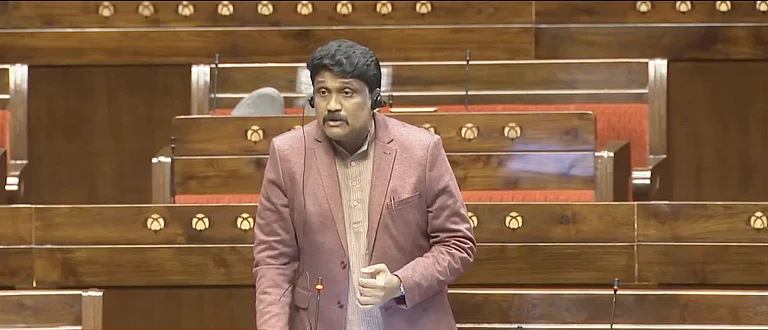When he said, "If I were starting off today, I would love to be a well-educated black because they have an actual advantage," Trump touched directly on the insecurities of whites who were struggling to keep up in a Darwinian economy. In 1989, when he made this remark, few white men would choose to be black. Some did, however, resent both affirmative action programs, which were created to redress historical discrimination, and school integration efforts that affected their families while exempting those who could afford to send their children to private school. Trump cut through the complexities of these issues, appealing to white grievance and forgoing a sophisticated understanding of race in his time.
But while Trump occasionally promoted his views on race and social class, he constantly dwelled on his own success. He would confess that he had struggled in some aspects of his personal life, but would also draw attention to the many beautiful women he had known as proof that he was an impressive man. In another place or time, this kind of talk would be dismissed as crass and self-defeating. But in Trump's time, self-promotion had become an acceptable if not essential part of everyday life. With the advent of the Internet and then social networking sites such as Facebook, individuals in all walks of life developed sophisticated, brochure-ready versions of themselves based on flattering pictures, tales of their impressive exploits, and reports on their latest purchases. Sizing up the end of the twentieth-century, an NBC TV executive with a doctorate in sociology said that superficiality had triumphed over substance. "All the stuff our parents told us didn't come true," said Rosalyn Weinman, PhD. "No one cares if you're good. People only care if you're good-looking and rich."
Having won the attention of the press and public as a rich and good looking man, Donald Trump continually sought to keep it. To stay good-looking he battled against middle-age weight gain, wore a uniform of expensive suits, and devoted great effort to keeping his hair. "The worst thing a man can do is let himself go bald," he had once told casino executive Mark Estess. "Never let yourself go bald ." As he said this, Trump gave Estess a tube of cream that supposedly stopped the progress of hair loss. The cream was just one part of the Trump campaign against baldness. In his book Lost Tycoon, writer Harry Hurt described a surgical procedure that had closed the bald spot on the back of Trump's head.
Trump denied he underwent surgery for hair loss, but beginning around 1990 his coif became the subject of frequent speculation in the press.
Once a helmet of brown, it became an extravagant complex of reddish-gold swirls and parts that included swooping strands that moved from one side of his head to the other, and others that went from back to front. All this effort led Time magazine to consult a stylist and publish a diagrammed account of how it was done. Presented under the head line "The Secret to Donald Trump's Hair," the graphic showed how a man's hair, grown long in the back, could be combed forward, then swept back and fixed with spray. Captions warned, "Don't confuse this with a classic side-part comb over," and referenced the dramatic styles of cartoon character Wilma Flintstone and real-life talk-show host Conan O'Brien, whose unruly, red waves resembled breaking surf.
Trump was a good sport about the hair commentary. On occasion he would invite an interviewer to examine his head to see if it was real. But the media's fascination with Trump's hair didn't revolve around the question of whether it was real. What was significant was what it said about his audacious vanity. In his mind, going bald was a greater shame than the confection atop his head. In time, his hair would become such a distinguishing feature that costume makers would sell Trump wigs for Halloween.
As a man who craved attention, Trump was unable to change his hairstyle because it got him noticed, and there was almost nothing he wouldn't do for attention. In 1999 he went so far as to renounce his membership in the Republican Party and engage in an extended flirtation with the Reform Party of the United States of America, which was preparing to field a candidate in the 2000 presidential election. As Trump began his political whirl, he turned to Roger Stone, the onetime dirty trickster, to direct what was called an "exploratory" committee. These organizations allowed anyone who thought he or she might want to run to act like a candidate and solicit the attention of the press and public, without committing to a process that could be won or lost on the basis of actual votes. Exploratory activities were like the pitches thrown by a fastballer warming up for the game. Fans might ooh and aah at the sound of the ball popping into the catcher's mitt, but it didn't count until the umpire cried, "Play ball!"
One could have said that Reform Party process was basically an exhibition that would amount to little more than an outlet for the frustrations of those who believed, more as a matter of faith than fact, that Bill Clinton had won election as president because his GOP opponents were insufficiently conservative. A legacy of businessman Ross Perot's failed 1992 and 1996 presidential campaigns, the Reform Party was so small and disorganized that it stood no chance of winning a national election. Perot's showings had, however, qualified it for more than $12 million in federal aid in the 2000 campaign. This money was a lure for consultants, who would enjoy a bit of cash flow if they were hired to conduct polls, craft strategies, or develop campaign advertisements. But no independent political expert would give the party any chance of playing more than a spoiler's role in the 2000 presidential race.
The party's one real claim to success had been the election of former pro wrestler Jesse "the Body" Ventura as governor of Minnesota in 1998. Yet Ventura's election was more a matter of his celebrity than his Reform Party affiliation, which he underscored when he left the group during his first year in office. Some in the Reform Party hoped to woo him back, but as the 2000 election approached, the Body declined to seek its presidential nomination. His decision left the field open to others, including the longtime Republican activist Patrick Buchanan, who claimed a "peasant army" would support him. Like Roger Stone, Buchanan was a Nixon alumnus with rather extreme views. His inflammatory comments about the Holocaust, for example, had earned him the label "unrepentant bigot" from the Jewish Anti Defamation League.
Buchanan, who had mounted two previous failed attempts to win the GOP nomination, framed his campaign for the Reform Party nod as a matter of principle, saying that he represented the true conservatism that the Republicans had abandoned. Anti-abortion and isolationist in his foreign policy, Buchanan was driven by his desire to get a hearing for his ideas, some of which were consistent with those Perot had advanced as the Reform Party's first standard-bearer. With his campaign, Buchanan got what he wanted as voters attended his speeches, reporters wrote articles about his views, and TV producers invited him to appear on national programs such as Meet the Press, Face the Nation, and Fox News Sunday.
Trump received the same kind of attention after he joined the party in the fall of 1999 and said he was considering a run for the Reform Party nomination. His views were less refined and detailed than those offered by Buchanan, who had spent decades in politics. Trump also expressed some ideas that would have appealed to mainstream Americans but were anathema to many Reform Party stalwarts. For example, Trump said the Republicans had "moved too far toward the extreme right" and that he was capable of capturing more than the "really staunch-right wacko vote" by reaching middle-of-the-road Americans. But the core of the Reform Party was "staunch right," and Trump would never win the party's nomination by veering left. He did make himself more visible with every appearance in the press, where his audience could be rewarded with outrageous statements:
On Buchanan: "He's a Hitler lover; I guess he's an anti-Semite. He doesn't like the blacks, he doesn't like the gays."
On Cuba: Fidel Castro is "a killer and should be treated as such."
On his ideal running mate: Oprah Winfrey because "she's popular, she's brilliant, she's a wonderful woman."
On candidates who are proud of their humble backgrounds: "They're losers. Who the hell wants to have a person like this for president?"
Extracted with permission from Thomas Dunne Books and Pan Macmillan India.





















